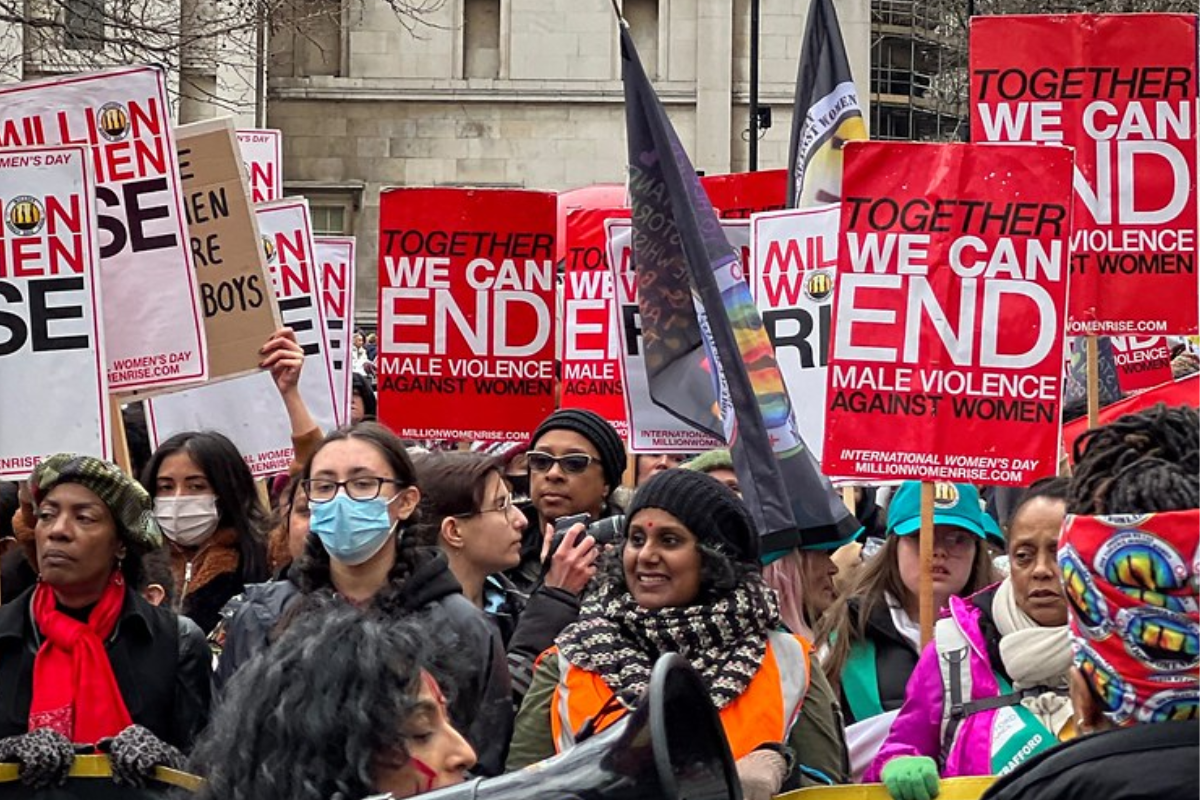The recession has hit the working class hard as big business seeks to make ordinary people pay the price for the greed of the banksters and the City of London. For working class women, things are looking very grim already – here Rachel Gibbs reveals some of the facts and what they mean.
The global crisis
Since the global financial crisis hit the UK in 2007, with the collapse of Northern Rock, the effect on working class people has been devastating. The unemployment rate has risen to nearly 8% (the highest since 1995 and this a figure that doesn’t take into account those forced into part time work) whilst the poverty rate now stands at 22% (representing an addition of 1.5 million people since 2005). The recession has also resulted in more and more unemployment amongst female headed households.
The public sector
The majority of women are employed in the service sector. This has traditionally been a largely unorganised section of the working class and hence has experienced some of the worst conditions; low pay has often predominated alongside casual working hours. This is reflected in the fact that 29% of female workers are considered to be ‘low paid’ (compared to 16.1% of male workers) and 40% work part time, of which 15% wanted more hours even before the onset of recession. Currently there are 600,000 women who have been forced into part time work and 250000 in temporary work. Low paid and part time workers are the first to be hit by the recession as, purely due to their financial situation, they are the least prepared to face rising prices and the credit crunch. In addition to this, they are the first workers to be laid off when a company begins to hit hard times.
Currently the overall percentage of women who have been made unemployed is less than that of men but proposed cuts in the public sector are also very likely to have disastrous consequences for working women. The public sector is strongly female dominated: nearly 30% of women workers are employed in the public sector compared to just 13% of men (LFS Data 2006), which has resulted in women accounting for 65% of the public sector workforce. Clearly redundancies and pay cuts in the public sector will lead to great suffering for many female workers. Cuts to public spending will also put further pressure on working class women as they are the most likely to currently be receiving benefits; be that as low paid workers, single parents or in old age. Things are no better for the retired. The average income of a female pensioner is a third less than her male counterpart and many are only able to survive through state pension ‘top up’ schemes which often still leaves them toiling. 37,000 pensioners died in 2008 as a result of illness brought on by being unable to heat their homes properly.
The price of recession
The situation for women who have been made unemployed is very bleak. For those with dependent children it is increasingly difficult to find working hours to fit around childcare and, for those with preschool children, private nursery fees ( which can be up to £200 per week) may exceed the pay being brought in by low paid workers. Sexism also still prevails in the workplace as bosses are reluctant to employ women with children in the belief that they may be ‘unreliable’ and any woman of child bearing age is seen as a risk by bosses, who in their pursuit of maximum profit dread the thought of having to pay employees’ maternity leave. As such female workers stand more at risk of being in the firing line when it comes to redundancy.
In addition to the stress over their employment, many working class women are also the main carers in their family. They are much more likely to care for an ill family member than men and this succeeds in adding still more stress to women’s lives as they carry out the majority of capitalism’s unpaid work-cooking, cleaning and looking after children whilst in many cases struggling on low wages or no wages at all. Particularly due to increasing numbers of single mothers, a woman’s wage has become increasingly important amongst working class families. Gone are the days when most could survive on a male ‘breadwinner’ wage packet. In addition to this, youth unemployment is on the rise which has forced many young people (including thousands of university graduates) back to the family home where parents, who themselves may be facing redundancy/cuts in hours, struggle to support them. The Recession has also led to a rise in domestic violence as more and more men turn to drugs/alcohol to escape from their misery and consequently become abusive towards their partners-there was a 26% rise in domestic violence in York and Selby from 2008-2009.
Women and Class
 This recession, a product of the greed and short comings of the bankers and bosses, has resulted in devastating consequences for the working class in general. Women have been hit particularly hard by the recession due to their position as a doubly exploited area of the working class. They are the most likely to be in low paid work and carry out much of the unpaid work of the capitalist system. Coming cuts to the public sector will only exacerbate problems as the working class is forced to bear the burden of the crisis. The struggle for the emancipation of women stands at the heart of the struggle of the wider fight for socialism. Marxism understands that the historic oppression of women in society is rooted in the division of the classes and the exploitation of the masses by the rich few. The attacks on wages, conditions and the hard won gains of the social wage that disproportionately affect women are attacks on the working class as a whole. We won’t pay for their crisis!
This recession, a product of the greed and short comings of the bankers and bosses, has resulted in devastating consequences for the working class in general. Women have been hit particularly hard by the recession due to their position as a doubly exploited area of the working class. They are the most likely to be in low paid work and carry out much of the unpaid work of the capitalist system. Coming cuts to the public sector will only exacerbate problems as the working class is forced to bear the burden of the crisis. The struggle for the emancipation of women stands at the heart of the struggle of the wider fight for socialism. Marxism understands that the historic oppression of women in society is rooted in the division of the classes and the exploitation of the masses by the rich few. The attacks on wages, conditions and the hard won gains of the social wage that disproportionately affect women are attacks on the working class as a whole. We won’t pay for their crisis!






